You may not know of a place called Highway Garden (
Flower farming in Taiwan originates in Tianwei (

PHOTOS: DEREK LEE, TAIPEI TIMES
Tianwei has earned its reputation for being at the heart of the country's flower trade and as such has beautiful gardens and more than 200 flower shops, nurseries and European-style coffee shops along the two-lane road leading to the town. Day and night, the Highway Garden (
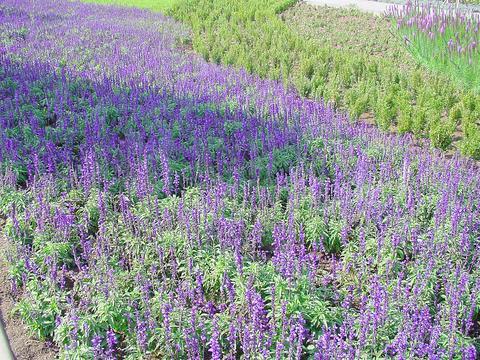
Chen Hsi-chian (陳錫堅) is a second-gene-ration flower farmer in his 40s and is the prime mover behind the Highway Garden project in Tianwei. "Most of the flower farmers in this town inherit their business either from their father or grandfather. Tianwei now grows the biggest variety and highest volume of flowers in Taiwan," Chen said. "We cultivate around 200 hectares of land to grow more than 10 million chrysanthemum plants [of different types] each year, in order to meet the needs of domestic and overseas buyers. Whatever the season, a visitor will see different kinds of flowers being grown here."
Both Lee Kun-ti (
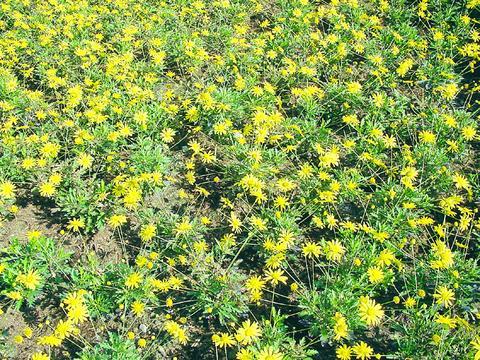
The most important reason for the success of flower growers in the area is however, beneath their feet. The thick mud brought down from mountain areas each year by a flooding Choshui River (
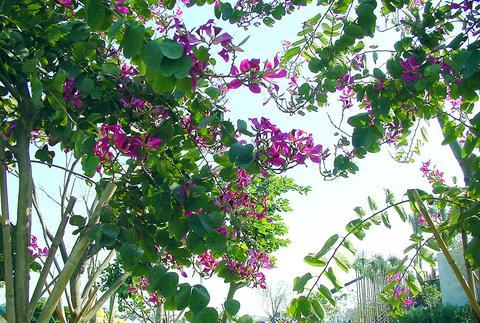
With its century-long history of flower farming, Tianwei has expanded its farming operation to approximately 300 hectares. This represents an estimated 43 percent share of Taiwan's wholesale flower market.
As such it was no surprise when Zhanghua County Magistrate Wong Chin-chu (
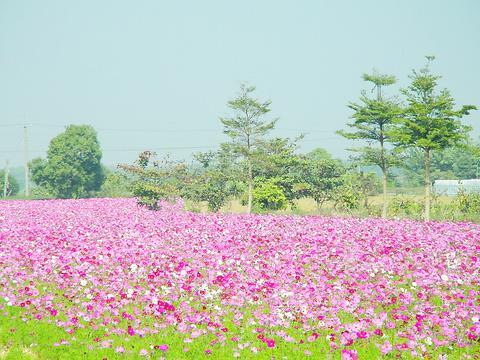
There is a good reason why the flower show is being held during the winter season. Due to the relatively cooler temperatures of around 22℃ on average from November to March in central Taiwan, the quality of the flowers is best at this time of the year. Also, the Lunar New Year holiday season -- between mid-January and mid-February, lasting about five days -- sees sales go up by three to four times the normal volume. The flower show in Hsichou from Jan. 17 to March 14 is therefore a good way of promoting sales of high quality winter flowers to the two largest public auction houses in Taiwan -- Neihu (
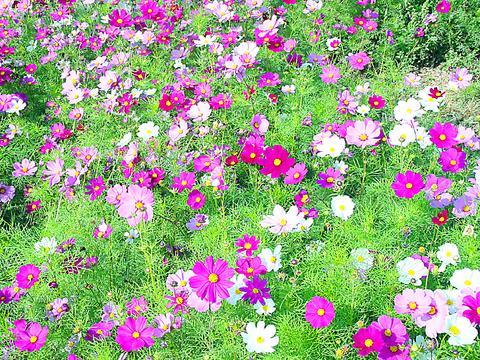
Presently, the total annual value of the flower industry in Taiwan is slightly more than NT$10 billion. Of this, more than NT$3.2 billion of business is in cut flowers, said Tom Chang (
Zhanghua County is now ambitiously committing nearly 5,000 hectares of land for flower growing in an attempt to account for 46 percent of the country's total plantation area.
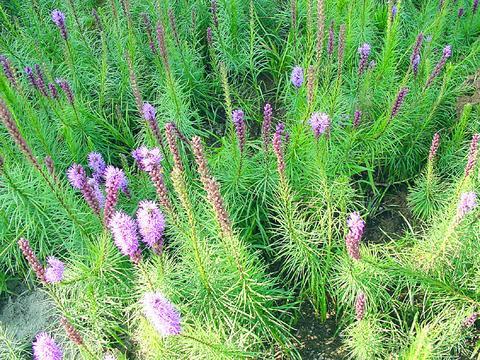
Kevin Chung (
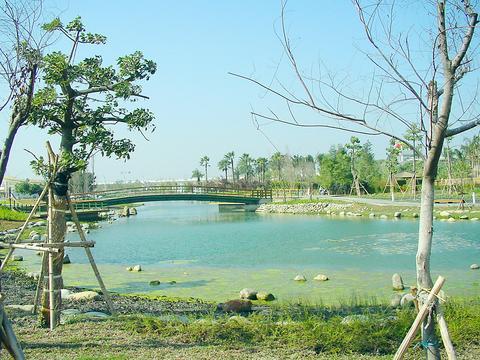
With its tropical and sub-tropical weather, Taiwanese flowers such as the Formosan moth orchard (
Chen said Taiwan's flower growers competed on level terms internationally in terms of variety, production skills, packaging and control of flower farming and the size of the Hsichou Flower Expo 2004 shows just how determined local growers are to build the country into a flower kingdom, through skilful management and plantation of tropical and sub-tropical plants and flowers. The show is a milestone for the local floral industry, which is set to grow further and perhaps even one day rival Holland.

A vaccine to fight dementia? It turns out there may already be one — shots that prevent painful shingles also appear to protect aging brains. A new study found shingles vaccination cut older adults’ risk of developing dementia over the next seven years by 20 percent. The research, published Wednesday in the journal Nature, is part of growing understanding about how many factors influence brain health as we age — and what we can do about it. “It’s a very robust finding,” said lead researcher Pascal Geldsetzer of Stanford University. And “women seem to benefit more,” important as they’re at higher risk of

March 31 to April 6 On May 13, 1950, National Taiwan University Hospital otolaryngologist Su You-peng (蘇友鵬) was summoned to the director’s office. He thought someone had complained about him practicing the violin at night, but when he entered the room, he knew something was terribly wrong. He saw several burly men who appeared to be government secret agents, and three other resident doctors: internist Hsu Chiang (許強), dermatologist Hu Pao-chen (胡寶珍) and ophthalmologist Hu Hsin-lin (胡鑫麟). They were handcuffed, herded onto two jeeps and taken to the Secrecy Bureau (保密局) for questioning. Su was still in his doctor’s robes at

Last week the Democratic Progressive Party (DPP) said that the budget cuts voted for by the China-aligned parties in the legislature, are intended to force the DPP to hike electricity rates. The public would then blame it for the rate hike. It’s fairly clear that the first part of that is correct. Slashing the budget of state-run Taiwan Power Co (Taipower, 台電) is a move intended to cause discontent with the DPP when electricity rates go up. Taipower’s debt, NT$422.9 billion (US$12.78 billion), is one of the numerous permanent crises created by the nation’s construction-industrial state and the developmentalist mentality it

Experts say that the devastating earthquake in Myanmar on Friday was likely the strongest to hit the country in decades, with disaster modeling suggesting thousands could be dead. Automatic assessments from the US Geological Survey (USGS) said the shallow 7.7-magnitude quake northwest of the central Myanmar city of Sagaing triggered a red alert for shaking-related fatalities and economic losses. “High casualties and extensive damage are probable and the disaster is likely widespread,” it said, locating the epicentre near the central Myanmar city of Mandalay, home to more than a million people. Myanmar’s ruling junta said on Saturday morning that the number killed had